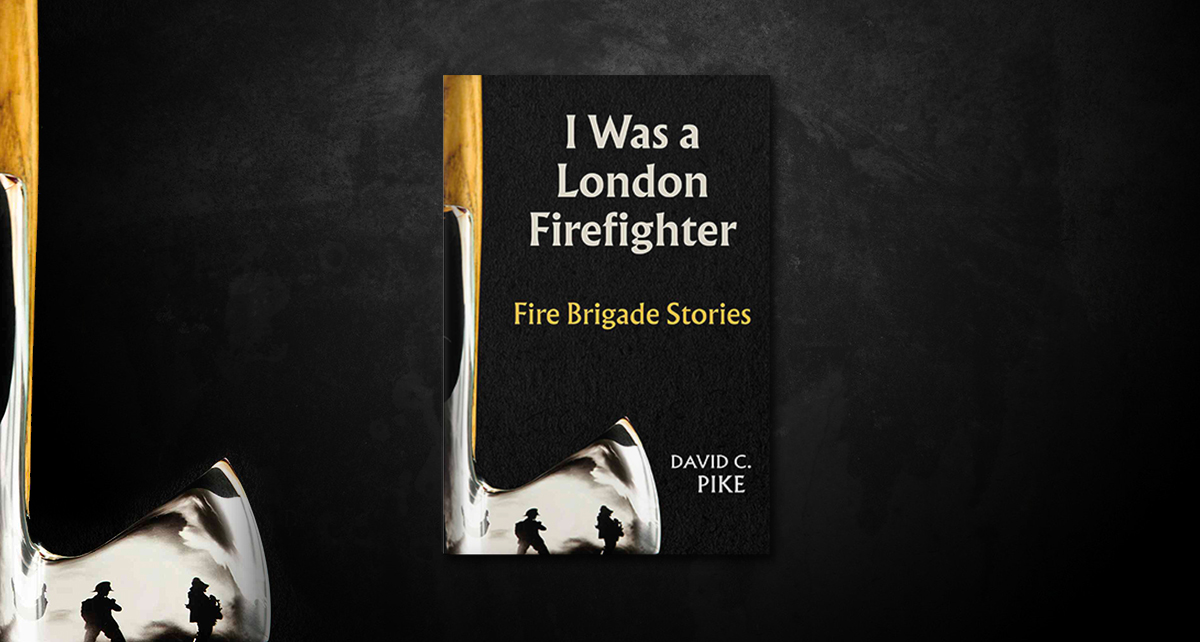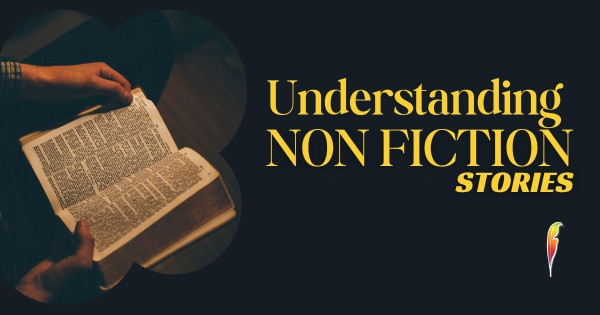
An Afternoon at Austin Macauley - David Pike, I Was a London Firefighter.
An Afternoon at Austin Macauley is back, and this week is an absolute scorcher! In the hot seat (literally) this week is David Pike, author of I Was a London Firefighter.
“What is a firefighter?
They are the person next door…
They are like you and me with warts and worries and unfulfilled dreams.
Yet they stand taller than most of us.”
David joined the Fire Brigade as a cadet at just sixteen. Awarded the Queen’s Commendation for Brave Conduct as a young fireman, David steadily rose through the ranks of the London Fire Brigade, until he retired from senior rank in 1996. Now, David writes and reflects on his career and experiences, with I Was a London Firefighter being the latest of his work.
I Was a London Firefighter contains a host of factual narratives and fictional tales based loosely around personal experiences from individuals from the London Fire Brigade, ranging from the mid-19th century to present day. The book focuses on key historical events such as the IRA’s 20-year bombing campaign in London, the King’s Cross fire of 1987 and a compelling description on the 2017 Grenfell Tower Fire.
The fire services continuously face difficulties, from lack of funding to staff cuts and station closures, whilst constantly being in the eye and firing line of politicians, lawyers, media and the public.
David adds a more personal approach with sections throughout the book providing emotional insight to the bravery and commitment of our firefighters and in this interview, speaks more in depth about his experiences, career choice and thoughts on current situations the fire services face today, such as the role of women within the fire service.
David has written and published 4 award winning books with Austin Macauley, Beyond the Flames, London’s Firefighters and Fire-Floats and Fireboats, with I Was a London Firefighter being his latest. All of which can be purchased here.
David continually supports the fire service industry today, with I Was a London Firefighter supporting the Massey Trust, and all proceeds from London’s Firefighters going to the Fire Service Charity, Firemen Remembered.
We must point out that David’s books can always be found on Austin Macauley desks with a cup of tea throughout the office – Our own staff are truly excited for this interview and we hope it’s an interesting read for you as well.
David Pike - I Was a London Firefighter
What inspired you to write I Was a London Firefighter?
Today, we all move at such a rapid place that history can get forgotten as people are constantly looking forward to the next must have this or that. This is true of many public service organisations and the London Fire Brigade is no different.
It has a wealth of traditions and history, sometimes tragic, sometimes not, that can so easily be overlooked if it is not put in the public domain for people to share and to reflect on. In this book I was aided by individuals with a similar version of bringing aspects of the past to life with true stories of bravery and sacrifice and of fictional tales which shows the work of London’s fire brigade in all its guises.
Why did you choose a career as a firefighter?
I am that old that I actually chose the career of a ‘fireman’. Today’s term reflects the changing face of the service and its drive to secure ever more women into its ranks. But regardless of which label you use the ‘job’ had (and still retains) qualities which were exciting, demanding and extremely rewarding.
Riding a fire engine was a childhood dream and I got to live the dream. I consider myself a very lucky individual to have done that.
What is the biggest issue facing the fire services today?
Same as it has faced for many years, one of money and politics. Years of cut backs has taken its toll on the Fire and Rescue Service across the country and CUTS HAVE CONSEQUENCES! Many Brigades are reducing firefighters’ numbers and seeing fire stations closures as they attempt to balance their books against a background of reduced funding.
What’s been your most memorable experience as a firefighter?
In 1991 I was in senior rank and tasked with putting together a major commemorative event at St Pauls Cathedral in the presence of Princess Diana and the two young princes, William and Harry. Some 80 ‘blitz’ veteran firemen and firewomen were invited to attend and to march in the emergency services and military parade from Aldersgate to St Pauls, a distance of just over a mile.
I arrived at Aldersgate around 8 a.m. and most of the veterans had already arrived not wishing to miss the 10 a.m. start of the march. We were gathering at the former London Salvage Corps building, now in the ownership of the Brigade, and my attention was drawn of one veteran standing, alone, by the open appliance room doors looking out into Aldersgate Street. This dignified gentleman had tears filling his eyes when I tapped him on the shoulder to inquire if everything was alright? He turned to face me and the tears were falling onto his cheeks.
“I was last here in December 1940, he said. I was in this very street and none of these buildings were here then. The old office buildings that once stood here in Aldersgate ran up both sides of the street. They were burning out of control, from the ground to the top floors. Most were six floors high and flames were coming from every opening. It was so hot we could not even walk up the middle of the road. It was an unforgettable night and some of my mates never saw the dawn, killed whilst fighting these fires. I told myself I never wanted to come here again and have to remember that horrific night.”
Wiping the tears from his eyes he continued. “But I am glad I did. Then he reached out to warmly shake me by the hand. “Thank you for bringing us old firemen back to commemorate the London blitz-it’s the first time in 50 years that anyone has bothered to do it.”
Why have you chosen to support the Massey Trust with your book?
The Massey Shaw fireboat is an octogenarian. Like others in their 80’s not everything is as fit and well-oiled as things were in their 20’s or even mid-40s. The old girl needs constant maintenance and upkeep. That all cost money and as the most iconic fireboat in the UK I could not think of a better cause than my writing supporting the Massey Shaw Education Trust, its aims and, maybe, seeing this historic craft reach her 100 years and beyond.
Do you have any advice for people hoping to work in the fire services?
Be patient is the watchword for those wishing to apply. The fire service nationally has been subject to cut-backs and many are ongoing. Register your interest and look to do things that will support your application, plus stay fit. You can apply directly to join the fire service. City brigades, such as London, may generate more vacancies than some other Brigades. Each Brigade sets its own entry requirements. Many may ask for GSCEs at grades 9 to 4 (A* to C) in English and math or require equivalent qualifications.
Today’s firefighters come in all ages, shapes and sizes. While you do have to be physically fit, through training, you’ll learn how to tackle physical tasks correctly and, above all safely. Your natural physical build could be your strength when it comes to certain situations, like being small and agile enough to manoeuvre in tight spaces. Less than 15% of the firefighter’s role is responding to fires and other incidents. Much of your time is spent preventing emergencies through school visits, household visits and public building checks. When you do respond to an emergency, you’ll be trained to tackle it smartly and safely, never acting alone.
Register your interest. After you’ve registered, they’ll be in touch with helpful info about the recruitment process and likely recruiting dates. Be patient-you will be glad you were.
Out of all your publications, which was your favourite to write?
Fire-floats and fireboats-a history of London’s firefighting craft. This really was a voyage of discovery for me and a book that I am very proud of. It might have taken ‘niche`’ to a new level but unearthing many of the innovations that put firefighters onto the river took both detection and joining some of the dots. The book not only helps raise much needed funds for one of central figures, the fire-float Massey Shaw, but details its amazing history right up to the present day.
Do you have any opinions on why there are less women in firefighting? How can we encourage women and girls to go into a career as a firefighter?
There is a vast gulf between the numbers of men and women in the UK’s fire service. Even in London, which leads the UK in the total number of women in an operational role, they only represent 7% of its workforce as firefighters! So, with ever dwindling resources the job of a firefighter is arguably more difficult than ever. It remains a role that has always been fraught with physical danger and mental trauma. Sadly, as the Grenfell fire inquiry has demonstrated, it now includes being in the firing line of everyone from politicians to lawyers and the public.
There are no easy solutions, it is not about men versus women, or even blaming the media for creating a ‘macho’ firefighter stereotype. With dwindling resources, the job of a firefighter is arguably more difficult than ever. It is no wonder that many aspiring firefighters, both men and women, have been put off joining after watching the London Fire Brigade’s Station Officer Michael Dowden giving evidence at the Grenfell Inquiry and having to explain his actions, minute by minute, that night in what can only be described as the most hellish of circumstances. I could be argued that it is not a ‘macho’ firefighter image that puts women off wanting to pursue a fire service career; one in which they are expected to risk their life but having to defend decisions made in the most desperate of circumstances in the court of public opinion. Why would you want that?
There are, of course, women who would like to become firefighters but are put off. Put off by a belief that it will be an uphill struggle to change attitudes to women in the service. That’s a shame and not something that can be ignored. If policies don’t address why being a firefighter- whether you’re a man or a woman-is no longer an attractive option the public might find that we don’t have any left.
Are you working on any other projects?
None currently, but you will be the first to know.
What has your experience been like being published at Austin Macauley Publishers?
How have I found my time with Austin Macauley? Well, in a word… interesting. For those that research Austin Macauley Publisher (AM) you might find the phase ‘vanity publishers’ applied to it. It’s a word used to describe something that is done with the aim of getting praise, fame or approval at a price. However, it, and AM’s values, could not be farther from the truth. AM is there to support and guide you from your submission to publication.
For most authors writing a book is not done on some frivolous whim but rather for serious good reasons. Certainly, you wish to see your work published, it is something that AM clearly understands, but they are not a charity. They are a publishing business and, like any business, without satisfied customers and positive results they don’t move forward, hopefully taking you as an author with them.
Has there been the ‘odd’ glitch, certainly? But they strive to deliver a quality product; your book. Could they do more, possibly but these things are most frequently outside of their sphere of control. As someone who writes for pleasure, and to raise money for charity, Austin Macauley has always delivered to date. What more can I ask of them.
We use cookies on this site to enhance your user experience and for marketing purposes.
By clicking any link on this page you are giving your consent for us to set cookies



